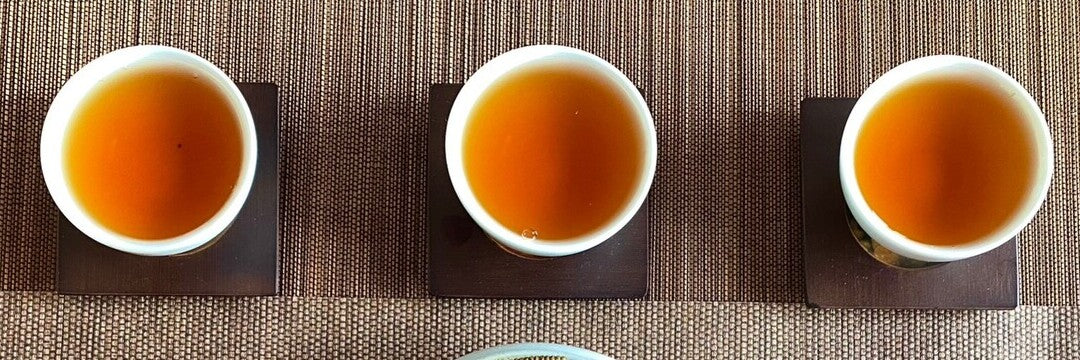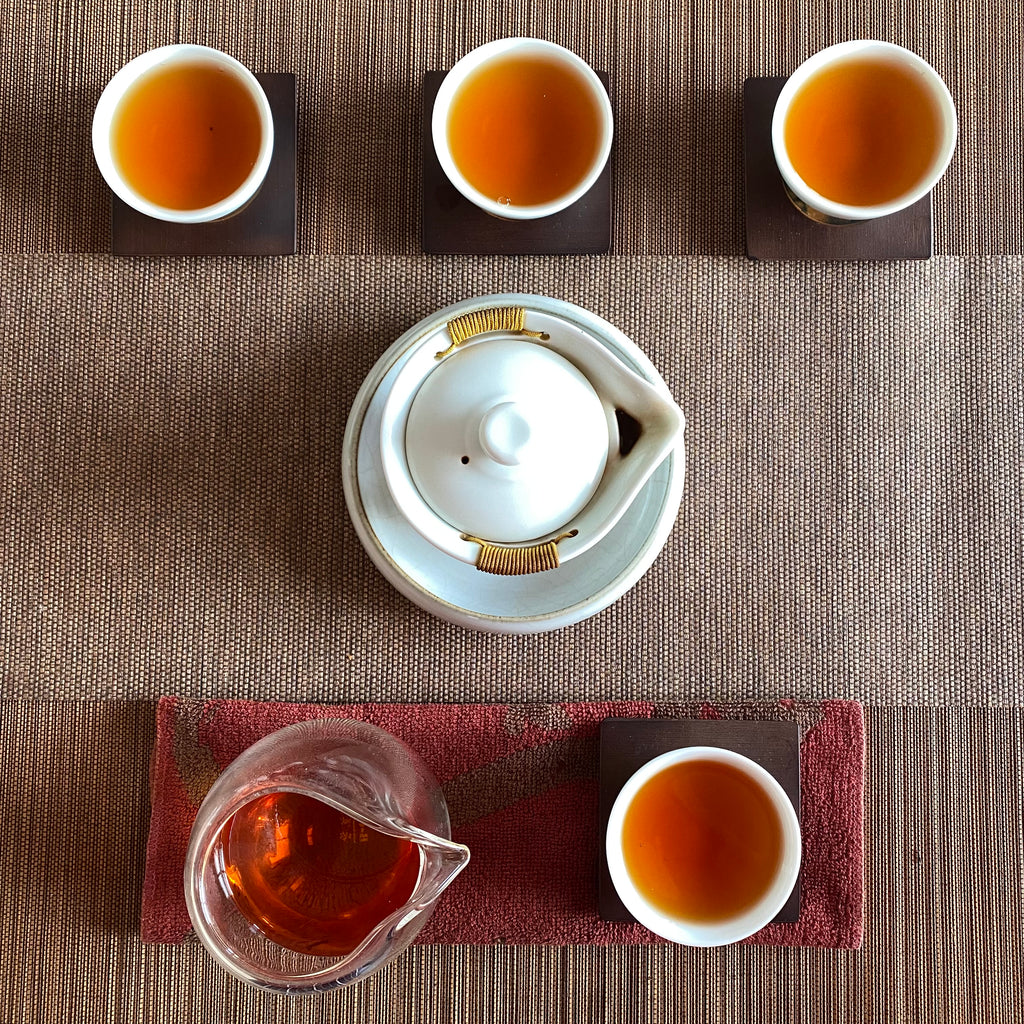
Qi Yun #23 Black Tea Tasting Notes | Eco-Cha Tea Club

Batch 98 of the Eco-Cha Tea Club is a Black Tea made from a new cultivar by the name of Qi Yun #23. It's Chinese name is derived from the place name of its origin in Qi Men, An Hui Province, China. The second word "yun" refers to its distinctive aftertaste. And it is in the finish that this brew stands apart. It has a pronounced orange citrus note that is akin to bergamot. So the leaves of the Qi Yun strain brew a naturally bergamot-like character of tea!

The dried leaves exhibit a premium quality leaf material that was picked while still young and tender and processed with care and skill. The oxidation is uniform and thorough, but not over done. This batch is some of the best Black Tea we've ever sourced. It's also the highest priced, but we had to go for it! The opportunity to procure a new strain of tea on the local scene that is also top quality was too good to pass up.

Just look at that limpid, luminescent orange color! It's not only the aromatic and flavor profiles that express an orange fruity character, it's in the visual presentation as well! The brewing leaves exude aromatic notes of candied orange and dark chocolate. The flavor profile is delicate and light, without the thick malty character of many Black Tea types. The most distinctive character is in the balanced dry finish — where you get a pronounced bergamot/orange citrus note that lingers on and on. It's really satisfying as well as refreshing. The citrus and dry qualities are balanced with just enough malty sweetness to reign in the astringency. It's that balanced, dry finish that makes this small leaf type tea act like a large leaf type Black Tea. (See the sourcing blogpost for details.)

The brewed leaves reveal the uniformity in the leaves and the delicate oxidation and rolling that was done with skill. The potential of any batch of tea begins with the farming practice, and continues with the harvesting of new leaf growth, then the painstaking processing of the leaves. Finally, it comes to the brewing methods used to bring forth the optimal brew. We recommend starting with a 1:22 ratio of leaves to water. In the tasting video we did a 1:20 ratio, but then proceeded to use less leaves (8g for a 180mL teapot), and got even better results in terms of complexity and balanced brews. So without further ado, watch the video for the live tasting and the background story all-in-one!

